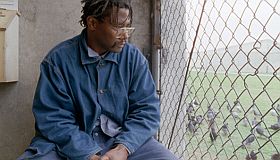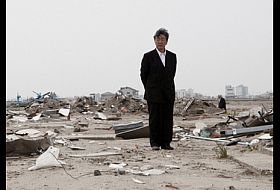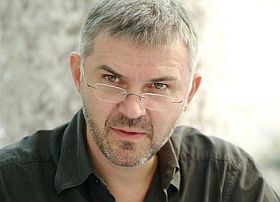


Michel Wenzer: At Night I Fly

New Folsom prison in California. A film made over several years. Literally an inside insight to a world we have no idea about existed, even if we have seen loads of prison films, most of them fiction, and many of them very good as (to put on the domestic Danish glasses) the recent ones by Thomas Vinterberg and Tobias Lindholm. Yet this film by Swedish Michel Wenzer goes so much closer in his cinematic interpretation of a life in a totally tough environment with armed guards, ”isolation, closure, loneliness” to ”keep us contained” as one of the inmates say.
The film has a sketchy, fragmentaric structure, but the impressionistic approach slowly adds up sequence by sequence, and you get some characters, who are reflective when it comes to their own situation and to the actions they take to fill their days to make it all bearable, or you could say to make sense of it all. The focus is on ”the arts in correction programme” in the prison, arts as a lifeline to sanity, and there are great scenes from this room where (some) inmates meet with people from other races, as they say, in a world where the white normally do not meet with the black, or the black with the latinos, or… Music, poem reading, writing, religious meetings, they are well articulated.
There are footage from riots, there are scenes where the brutality of the environment is evident, but the goal of the director is to show the strength of the inmates, who have chosen to express their life and pain in a creative manner.
The sound and music design is marvellous. In times where so much music is wall-to-wall ”this is what we want you to feel”, the work of Wenzer is respectful to the characters situation and to the equally strong visual circling around the isolated mini-world.
Sweden, 86 mins., 2012







